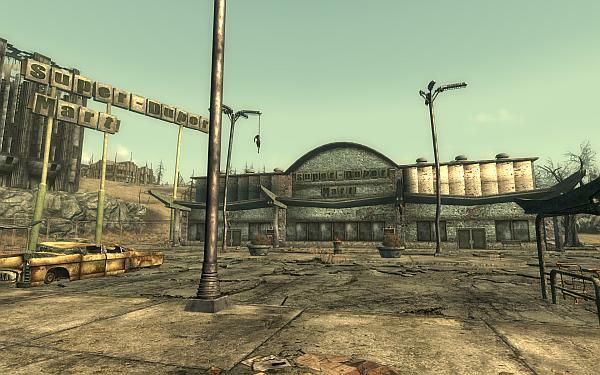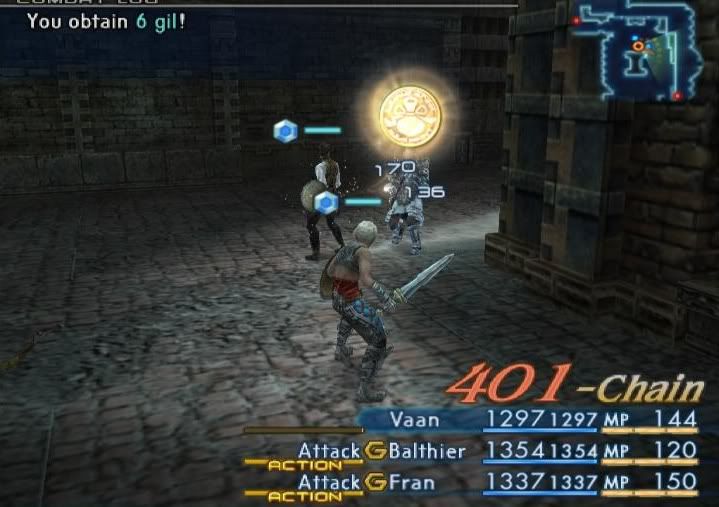This post has not been edited by the GamesBeat staff. Opinions by GamesBeat community writers do not necessarily reflect those of the staff.
 Money may be the root of all evil, but that didn’t disqualify it from becoming a topic for last month’s Bitmob Writing Challenge. Our community members sat in their virtual high-rises and pondered the economic systems of role-playing games, speculated about the role of collectables in platformers, and discussed the hidden costs of free-to-play titles.
Money may be the root of all evil, but that didn’t disqualify it from becoming a topic for last month’s Bitmob Writing Challenge. Our community members sat in their virtual high-rises and pondered the economic systems of role-playing games, speculated about the role of collectables in platformers, and discussed the hidden costs of free-to-play titles.
So grab your cash with both hands, and make a stash as you read these 15 entries.
MMORPGs need more common cents
By Joseph Orellano
Star Wars: The Old Republic tries a new approach for crafting in massively multiplayer online role-playing games by having a crew do the heavy lifting for you. But as Joseph writes, you need to earn lots of cash and potentially make another character specializing in the field to fund the operation. Meanwhile, in-game goods cost a lot for marginal upgrades. This is why Jedi shouldn’t interfere in trade matters.
Secret of Evermore’s multiple in-game currencies
By Carlos Alexandre
A lot of people may have skipped Secret of Evermore in the Super Nintendo days, but not Carlos. The game has a different currency for every region, and players will have to exchange to the accepted standard whenever they enter a new land. You also need to gather alchemic materials to cast even basic spells. Neither system really works out, but that shouldn’t discourage people from taking this journey … as long as they have a guide at hand.
Being poor is good: Why engineered currency scarcity improves a game
By Steven Sukkau
By the time you complete most adventure games, your heroes will have so much money they will never have to be wage slaves again. Steven has become disappointed in the failure of series like The Legend of Zelda to keep the cost of items relative to the how much money you’re earning. You might not have to worry about buying items anymore, but that lessens the value of the rupees you collect.
Zynga: Morphin fun into extortion via FarmVille
By Daima Delamare
Daima tracks the history of holiday-themed activities in Zynga’s megahit FarmVille. What started as fun diversions turned into blatant schemes to force people to invite new friends in and prey on addictive habits. Now I know why I ignored all those Facebook invitations.
Dark Souls teaches players the value of money
By Danny Concepcion
This action RPG will hurt you in any way it can, including your pocket book. If you die, you’ll lose all the souls you've gathered that you need to buy items and level up your character. You’ll also have to spend “humanity” points to get up to full speed again, which can be tough to accumulate. Fun!
What’s free and what’s not in The Lord of the Rings Online
By Chandler Tate
The free-to-play price model gives players a chance to test a MMORPG like The Lord of the Rings Online for little investment, but the hidden costs to get more than the basics can amount to more than a monthly fee. Chandler takes a look at the different plans available to players and his own experiences as the game transitioned from a subscription-based model to the current system.
Collecting shiny things is the ultimate self-improvement plan (in games)
By Marcos Valdez
If money and experience points are both arbitrary number values, is there a real difference between them? According to Marcos: yes. Money and pseudo-currency like Final Fantasy 13’s Crystarium points function as small incentives that players will go out of their way to earn. Also, they are shiny.

Inconvenient currency in Bethesda RPGs
By Matt McArdle
Matt has a beef with the stores in Fallout and The Elder Scrolls games, where the owners only have a limited amount of cash in their registers to give back. The intention is to create a realistic society where people don’t have unlimited cash on hand. Developer Bethesda, however, doesn’t care if other elements are accurate, so why is this aspect important?
Fallout 3: My life of luxury
By Jonathan Oyama
While Matt doesn’t care for some parts of Fallout 3’s economy, Jonathan has exploited it to live the high life in post-apocalypse America. While getting goods may be tough at first, the game offers a variety of clothes and extra items that other RPGs just don’t have.
Rebuilding the old world, one fragment at a time
By Giancarlo Valdes
Like most of the things the indie darling Bastion does, its upgrade system puts its big-ticket competitors to shame. Fragments not only serve as a way to upgrade your hero, but they also help rebuild the world around you and encourage you to find more for the sake of that land.
Wealth for wealth’s sake
By James Schifflin
Back when Rare was in Nintendo’s corner, the developer was known for stuffing their games with collectables. This trend culminated with Donkey Kong 64, which took doodad-hunting to the extreme with multiple character-specific thingamajigs to find. It’s fitting that Rare used the R-rated Conker’s Bad Fur Day to subtly commentate on its habits and the obsession with getting a 100% save file.

Three lessons RPGs can teach everyone about economics
By Mike Barrett
1. The status-ailment market would collapse if we put more resources into learning the Cure spell. 2. Buying low and selling high doesn’t work when it comes to lame magic-resistance accessories. 3. A real warrior wouldn’t waste time getting dungeon-escape contraptions.
Actually, Mike tells us about practical skills our RPGs teach us.
The Bazaar system sets Final Fantasy 12 apart from the crowd
By Mike Barrett
Mike also posts this commentary on Final Fantasy 12’s monetary system. Rather than stealing the allowances of mindless beasts, you collect teeth and other loot to sell at the bazaar. Like in the MMORPGs the game mimics, you become a supplier whose goods influence the products you can buy.
My money is for everyone
By Edward Varnell
Edward writes about how getting money can be an end to itself that sidetracks players during their quest. Like Steven, he also covers the tendency for developers to run out of worthwhile items for the player to buy. His does view the financial system as an important part of role-playing games, however, and often bases his playthrough around acquiring dollars instead of leveling up characters.
Viewtiful Joe gives players a reason to hunt down collectables
By Chris Hoadley
I posted this example piece for the challenge a little later than usual, but hopefully it helped spur the rush of entries that came after it. Viewtiful Joe is unique as a platformer in that its main collectables are important to its combat system.
Thanks to everyone who participated in the challenge. Be on the lookout for this month's prompt coming soon.
